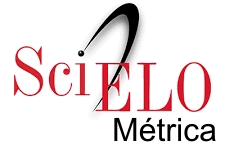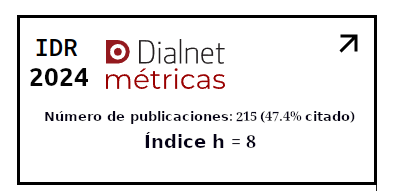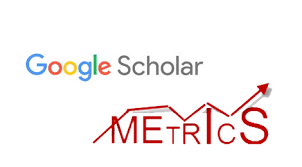La importacia del Mentor en la Formación del Investigador
Keywords:
Mentor-formación, investigadoresAbstract
Este artículo realiza una revisión sobre los distintos enfoques relacionados al mentor que constituye una pieza fundamental en la formación del investigador que se está iniciando. Según varios autores la importancia de crear una tradición investigadora radica en la elección del mentor y a su vez el grupo de investigadores que tiene a su cargo formar a los futuros investigadores. Brindarles las herramientas necesarias para desarrollarse como investigadores.
Downloads
References
Anderson, M. y Shannon, A. (1988). Toward a conceptualization of mentoring. Journal of TeacherEducation, 23, 56, 23-34.
Ávalos, B. (2002). Profesores para Chile, historia de un proyecto. Santiago: Ministerio de Educación.
Carruthers, J. (1993). The principles and practice of mentoring. Londres: Falmer.
Cochran-Smith, M. (2004). The problem of teacher education. Journal of Teacher Education, 55, 4, 67-82.
Crookes, G. (2003). A practicum in Tesol. Professional development through teaching practice.
Cambridge: Cambridge Language Education.
Feiman-Nemser, S. (2003). What new teachers need to learn. Educational Leadership: Keepinggood teachers. 60, 8, 91-112.
Field, B., & Field, T. (1994). Teachers as mentors: a practical guide. Londres: Falmer.
Flóres, R. (2004). Evaluación pedagógica y cognición. Bogotá: McGraw Hill Interamericana.
Frabboni, F. (2001). El libro de la pedagogía y la didáctica I: la educación. Madrid: Editorial
Harmer, J. (2003). The practice of English language teaching. Oxford: Longman.
Malderez, A., &Bodóczky, C. (1999). Mentor courses. Cambridge: Cambridge University Press.
Malderez, A., & Wedell, M. (2007). Teaching teachers: processes and practices. Londres: Continuum International Publishing Group.
Mechi (Muchmore, J. (2004). A teachers’ life. San Francisco: Backalong books. ACAD
Orland-Barak, L. (2002). The impact of the assessment of practice teaching on beginning teaching: Learning to ask different questions. Teacher Education Quarterly, 34, 56, 23-45.
Orland-Barak, L. (2003). Emergency room stories: mentors at the intersection between the moral and the pedagogical. Journal of In-service Education, 29, 3. 489-12.
Orland-Barak, L., & Klein, S. (2005). The expressed and the realized: mentors‟ representations of a mentoring conversation and its realization in practice. Teaching and Teacher Education, 21, 4, 34-57.
Orland-Barak, L. (2005). Lost in translation: mentors learning to participate in competing discourses of practice. Journal of Teacher Education, 56, 4, 66-79.
Peráfan, G. (2005). Pensamiento docente y práctica pedagógica. Bogotá: Magisterio.
Pipkin, M. (2010). Modos de enseñar, aprender e investigar en la universidad. Paraná. Entre
Ríos: Editorial Fundación la Hendija.
Randall, M., & Thornton, B. (2001) Advising & supporting teachers. Cambridge: Cambridge University Press.
Richards, J., (2001). Curriculum development in language teaching. Cambridge: Cambridge University Press.
Richards, J., & Lockhart, C. (2002). Reflective teaching in second language classrooms.Cambridge: Cambridge University Press.
Richards, J., &Renandya, W. (2002). Methodology in language teaching. An anthology of current practice. Cambridge: Cambridge University Press.
Roehampton Articled Teacher Consortium. (1991). Draft guidelines for the mentor. London: Roehampton Institute.
Scharle, A., &Szabó, A. (2000). Learner autonomy. A guide to developing learner responsibility. Cambridge: Cambridge University Press.
Schön, D. (1983). The reflective practicioner-How professionals think in action. New York: Basic Books.
Shaw, R. (1992). Teacher training in secondary schools. London: Kogan Page Limited.
VÉLAZ DE MEDRANO, C. ET AL (2001): “Evaluación de las necesidades de desarrollo profesional de los orientadores de Educación Secundaria” (pp. 199-220). Revista de Investigación Educativa (RIE), Vol. 19, Nº 1
Vygotsky, L.S. (1978). Mind in society. Cambridge: Harvard University Press.
Wallace, M. J. (1991). Training foreign language teachers: a reflective approach. Cambridge: Cambridge University Press.
Zeichner, K., & Liston, D. (1996). Reflective teaching: an introduction. New Jersey: LawrenceEalbaumAssociates.








